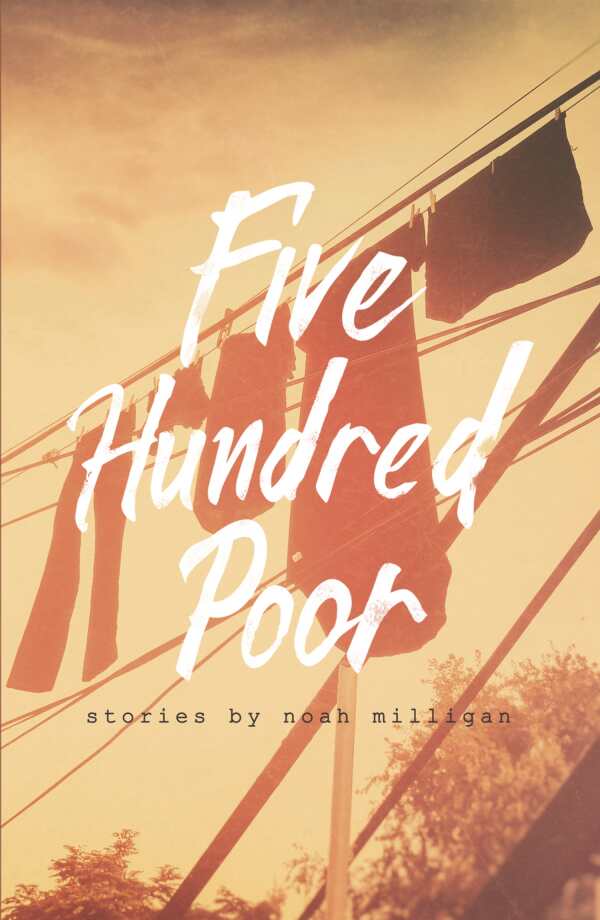Five Hundred Poor
Noah Milligan’s collection of short stories, Five Hundred Poor, takes its inspiration from a quote by economist Adam Smith, in which he wrote that for every rich man, there are five hundred poor ones who are frustrated by their own lack of wealth. The stories’ common setting is Oklahoma, from urban to suburban areas to drought-parched outposts where “the lazy moos of cattle” can be heard between relentless gusts of wind.
Though the majority of characters in the collection are not destitute, they are hindered by economic circumstances, obligations, or emotional poverty. They feel trapped and crave change, but are unable to push beyond their limited environments. Milligan’s writing has a calm surety, his stories nuanced with darkly comic, poignant, and truly unsettling elements.
In “The Deep Down Bone of Desire,” a glimpse of a forlorn department-store mannequin touches off a woman’s spending spree, starting with a purse and ending with a $250,000 credit-card debt. In “Rainbow Pennant,” a man forced to retire from his own company defiantly crams sugar-free retirement-party cake into his mouth, and signs the final contracts with the frosting. And in “The Motion of Bodies,” a community-college professor’s jocular, racist tweet leads to a bizarre and fateful alcoholic downward spiral.
The collection’s Oklahoma backdrop is finely and sometimes bleakly depicted, set amid soul-sucking casinos, Waffle Houses, and roadside stores selling souvenir Woody Guthrie mugs and ceramic buffalo skulls. Summers are blistering, winters “brown and spindly,” the public schools mostly underfunded and unmotivated. There are also moments of hope and persistence, celebrating Oklahoma Thunder basketball victories or the glory of a chicken fried steak. Quirky and compelling, Five Hundred Poor offers a memorable tour through a region often too dismissively regarded as “flyover country.”
Reviewed by
Meg Nola
Disclosure: This article is not an endorsement, but a review. The publisher of this book provided free copies of the book to have their book reviewed by a professional reviewer. No fee was paid by the publisher for this review. Foreword Reviews only recommends books that we love. Foreword Magazine, Inc. is disclosing this in accordance with the Federal Trade Commission’s 16 CFR, Part 255.

